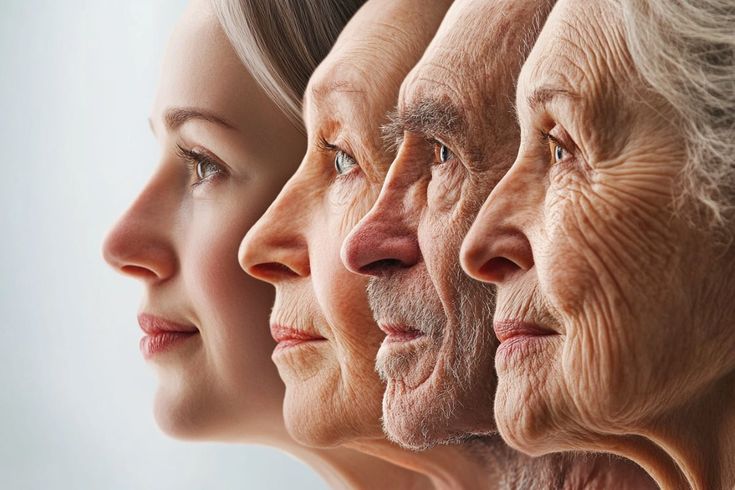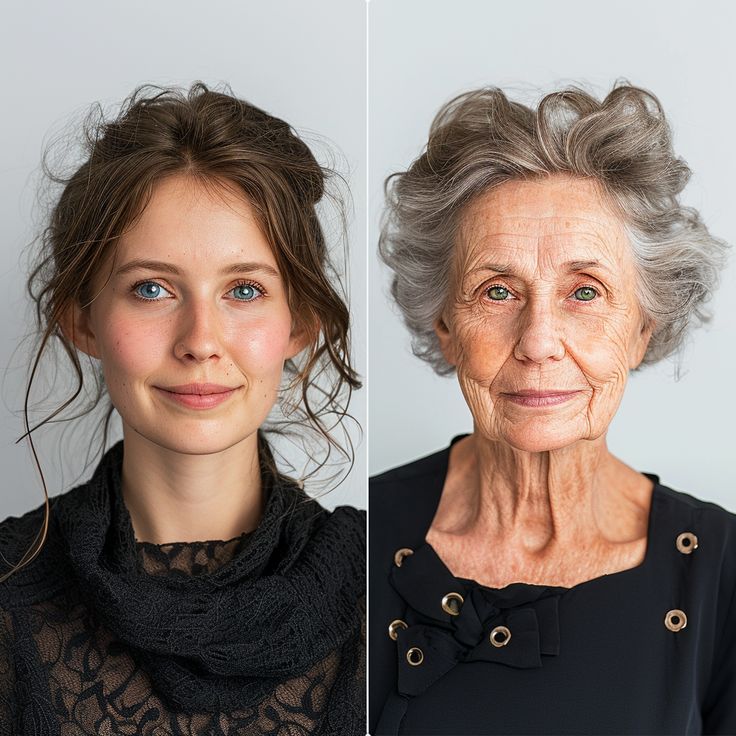
Genetics And Aging, Consider two pals, Lisa and Sarah. They share the same city, are the same age, and even work in related fields. While Sarah feels and looks vibrant at 60, Lisa suffers with persistent tiredness, joint pain, and wrinkles that seem to have arrived overnight. The difference is what?
Although genes definitely play a part, Sarah has perfected the art of longevity by means of little, daily activities supporting her DNA rather than working against it. This is supported by science. The good news also comes from you. You also can!
It is like a puzzle: although one component, genetics, is really essential. Though your DNA might be a blueprint, your lifestyle will determine whether or not that blueprint is expressed. Today we will examine how genes affect aging and, more importantly, what scientifically proven steps you can take to increase your lifespan and healthspan.
Aging is an inevitable outcome of cellular damage over time. Your genetic DNA contains instructions that can promote the growth and repair of your cells. Some of these instructions may affect the rate at which your cells decline, which plays a role in how long you live and how healthy you are.
Though genetics are the major factor, diet, exercise, stress, and exposure to toxins also influence how you age. Scientists estimate that around a quarter of differences in human lifespan are down to genetics, the other 75% being determined by the choices we make.

Aging has several genetic components, including:
Telomeres And Cellular Aging
Telomeres are protective caps at the ends of chromosomes that become shorter with every cell division. When telomeres get too short, cells are unable to reproduce correctly, which contributes to aging and disease. Different genetic variations help to determine how fast telomeres shorten, a process that influences aging.
The Role Of Sirtuins
Sirtuins are a family of proteins involved in cellular health and longevity. They assist in mending DNA, regulating inflammation, and directing metabolic function. Certain genetic variants can amplify or diminish sirtuin activity, which affects how well your cells function during the aging process.
FOXO3: The Longevity Gene
FOXO3 is an established longevity gene associated with a longer lifespan. Some versions of this gene bolster stress resistance, tamp down inflammation, boost cellular repair, and promote slower aging and a reduced risk of aging-related diseases.
The Impact Of Mitochondrial DNA
Mitochondria, the energy factories of cells, have their own genome. These mutations in mitochondrial DNA can result in decreased energy production and elevated levels of oxidative stress, both of which can contribute to hastening the aging process.
You can’t change your DNA, but what you can change is the expression of your genes through epigenetics (the study of how environmental factors impact the activity of your genes).

Healthy Diet: Antioxidant-rich foods combat oxidative stress and cellular aging.
Regular Exercise: Regular exercise turns on longevity-associated genes such as FOXO3 and up-regulates the efficiency of the mitochondria.
Mindfulness And Meditation: Chronic stress causes telomeres, the tips of our chromosomes, to shorten, so this one is a no-brainer.
Adequate Sleep: Sleep helps repair our DNA, and rejuvenates cells.
Reducing Toxins: Limiting exposure to pollution, smoking and excess alcohol reduces damage to DNA.
These factors can change how genes behave, potentially delaying the aging process and helping with long-term health.
If genetics inform the manner in which we age, they also matter because they help determine your risk of age-related diseases, including:
Certain variants in the APOE gene, especially one called APOE4, are associated with an increased risk of developing Alzheimer’s.
A geek report may determine how cholesterol, blood pressure, and inflammation affect your cardiovascular health.
Certain genetic variants increase the risk of insulin resistance and type 2 diabetes.
Mutations in genes that prevent tumors, such as BRCA1 and BRCA2, increase the risk of cancers, including breast and ovarian.
Knowing about these risks could allow individuals the opportunity to address certain lifestyle choices and also partake in medical screenings.
New breakthroughs in genetic testing enable people to understand their own DNA and how it relates to aging. Genetic tests, which are increasingly common, can reveal:
While genetic tests can provide important insights, their interpretation can be tricky. Inherited factors are only part of the picture, and life choices still matter in healthy aging.

The genetics behind aging is a fast-moving field, with exciting discoveries coming down the pike:
The field of gene-editing technologies like CRISPR is being researched by scientists to repair damaged DNA and possibly even reverse forms of aging.
Rapamycin and resveratrol are examples of drugs that could extend lifespan by targeting pathways of aging.
Genetic studies have allowed for tailored anti-aging treatments, identifying specific DNA groups that work effectively for individuals.
Nonetheless, these innovations are still early; they could prove that the genome is the key to increasing our life span and health.
Genetic testing may be an option if you are interested in how your DNA relates to aging. But think that over:
Pros
Cons
Speaking to a healthcare professional ahead of getting a genetic test can help you gain a better understanding of what your results mean for you.

Although your DNA serves as the canvas, you are the artist who determines the appearance of your aging painting. Science has taught us so much about extending our lives, and the best news is this.
Many of the best strategies, eating healthily, working out, regulating stress, and getting sufficient sleep, are entirely under your control.
Thus, regardless of your age, 25 or 75, it is never too early (or late) to start making decisions that support a longer, better life. Your future selves will appreciate this.
Would you like to learn even more about tailored longevity approaches? Genetic testing and collaborating with a medical practitioner to create an anti-aging regimen grounded in your unique DNA!
Genetics explains roughly 25% of the differences in how people age, with lifestyle and environmental influences constituting the other 75%.
No, while genetic testing can give you an idea of how you might fare in terms of longevity, it can’t tell you how long you’ll live; that’s influenced as much with external factors as it is with your genes.
The genes FOXO3 and SIRT1 are related to longevity and better cellular function.
Yes, diet, exercise, stress management, and sleep can positively affect how genes operate and impact aging.
Telomeres are caps on chromosomes that shorten as we age, and they are believed to drive aging and disease.
Gene therapy is a newer area that has outstanding potential for age-related recovery down the road.